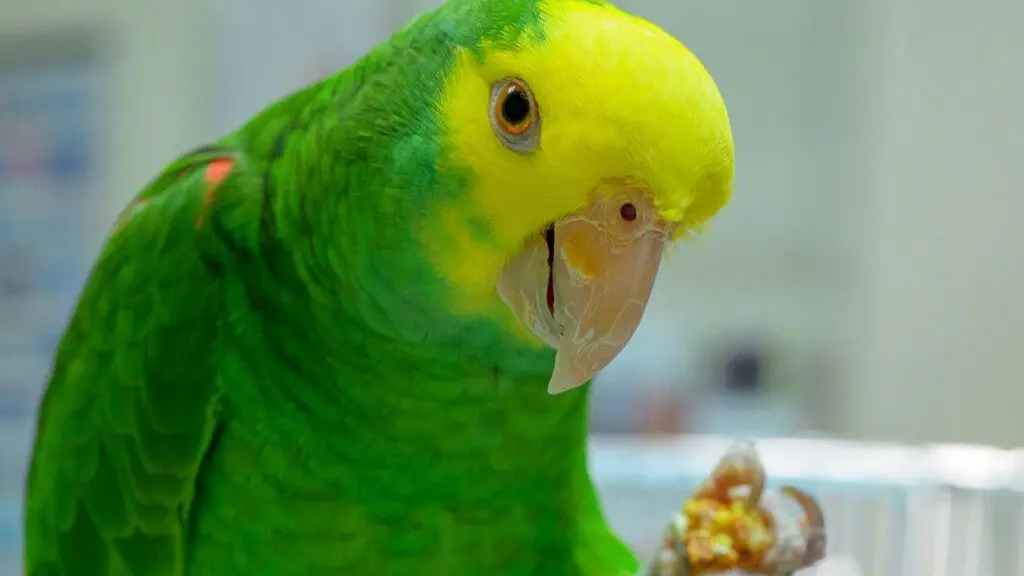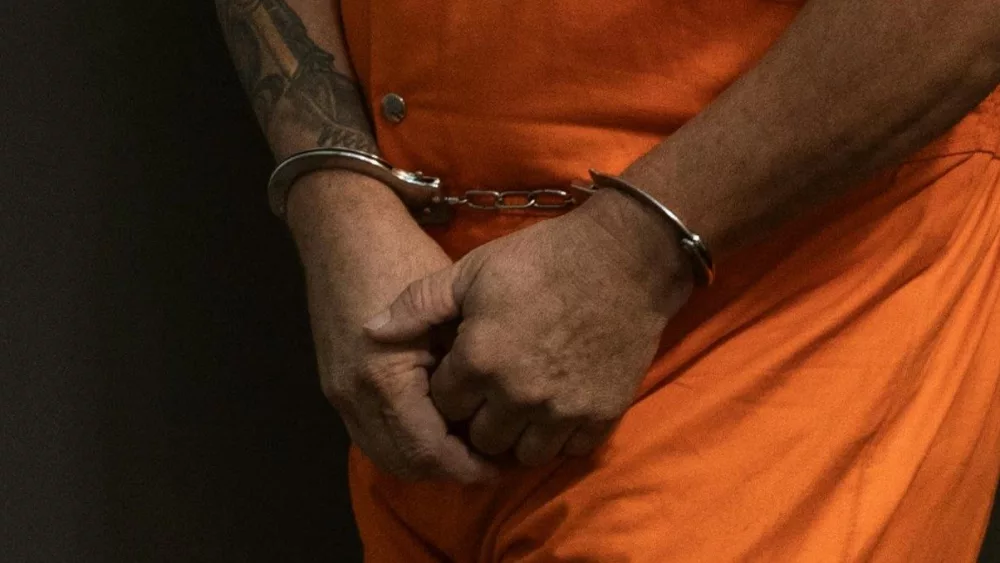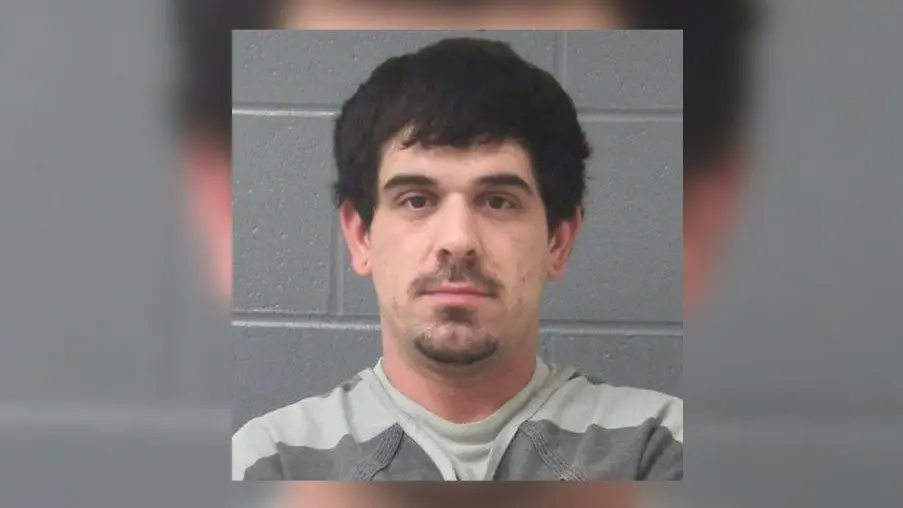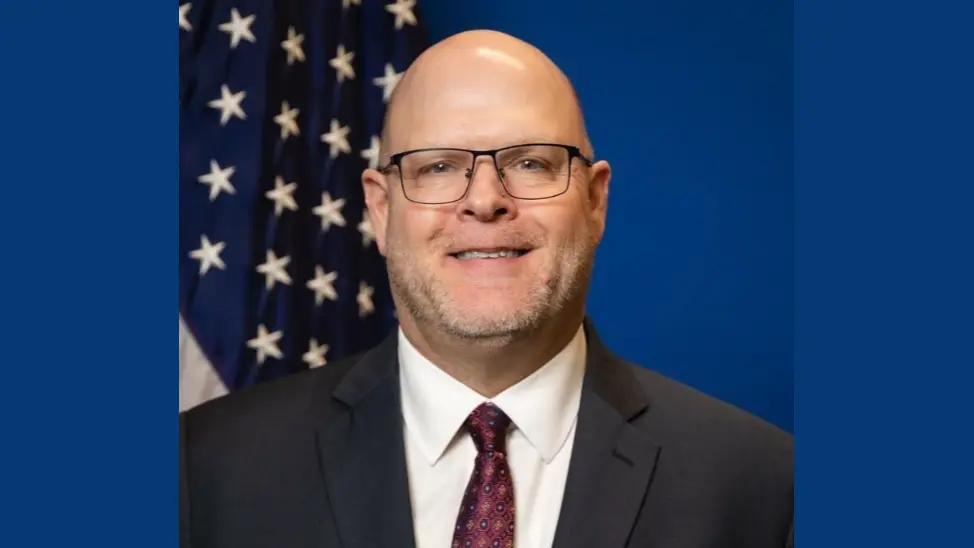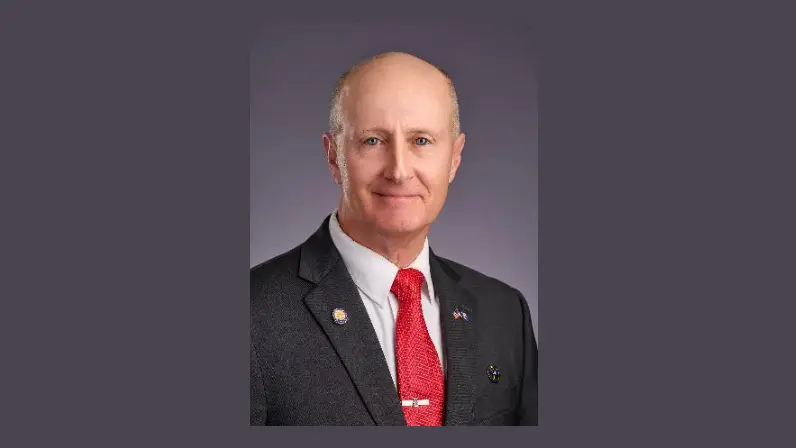PULLMAN, WA – A severely starved parrot in search of her forever home could live another 35 years after a Washington State University veterinarian performed an emergency blood transfusion with her own parrot playing the role of blood donor.
The double yellow-headed Amazon parrot was unable to talk, walk, fly or even open her eyes when she was surrendered to her new owners, Haylee “Dove” Leyva and Finn Wichert. Her condition was so dire, there was question whether the bird, since renamed Zinnia, would survive the ride from Spokane to her new home in Pullman.
“I was pretty worried for her,” Leyva said. “She did not look good at all, and she was about half the weight she was supposed to be.”
With a fear Zinnia would not survive, the pair immediately made an appointment with WSU exotics veterinarian Dr. Marcie Logsdon for the next morning. Logsdon concluded it was clear Zinnia hadn’t been getting enough to eat for some time.
“Based on her exam and the fact that she was so thin, this seemed like a pretty straightforward emaciation or starvation case,” Logsdon said.
As in many similar cases, Logsdon ran blood work on the parrot including a test for anemia called a packed cell volume (PCV). The test measures the number of red blood cells in the blood, and can be an indicator of malnourishment and longer-term starvation. Red blood cells in a healthy bird typically make up about 40% to 60% of the blood. The test found Zinnia’s red blood cells were at about 8% — the lowest Logsdon has seen in any bird.
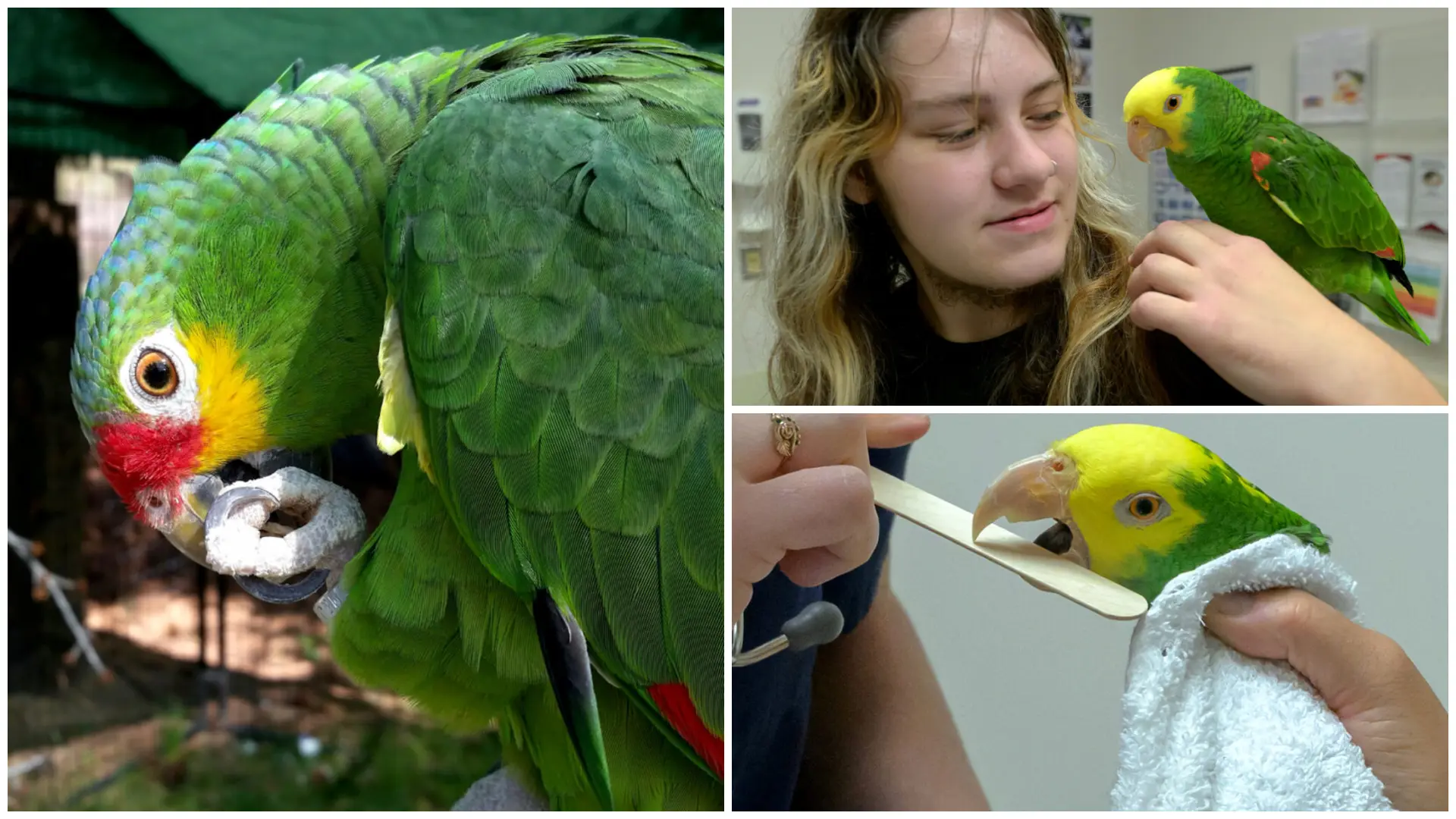
Dr. Marcie Logsdon used her own red-lored Amazon parrot, Oliver (pictured far left), as a blood donor for Zinnia.
“I was concerned she might not make it because that’s a lot to come back from,” Logsdon said, noting she was particularly worried about a condition known as refeeding syndrome, which occurs when food is introduced too quickly after a long time of inadequate caloric intake.
“If a bird is not getting the amount of nutrients and calories they need, first they’re going to burn through all their stores of fat, then they’re going to start burning through their muscle, and then eventually they’re going to hit a point where the body doesn’t have enough energy or supplies to replace those blood cells,” Logsdon said.
Knowing a blood transfusion would be the best treatment for Zinnia, Logsdon used her own red-lored Amazon parrot, Oliver, as her blood donor.
Drawing 3 milliliters of blood from Oliver — the equivalent of about 10% of all the blood in Zinnia’s body — Logsdon performed the transfusion in under an hour.
By the next day, Zinnia was already looking brighter.
“The change in Zinnia is really rewarding to see,” Wichert said. “She went from being on death’s door to being lively and flying again — she is a completely different bird.”
An original weight of 290 grams, Zinnia is now up nearly 100 grams to a healthy weight of 387 grams.
I really trust Dr. Logsdon with my birds. It makes me feel a lot more at ease that she owns birds of her own. She’s very gentle with them. She listens to their behavior, and she also listens to my concerns.
Haylee “Dove” Leyva
Leyva is in the process of attaining nonprofit status for her bird rescue, which has rescued more than a dozen birds in the past 10 years with the goal of finding caring homes for the animals. She said WSU’s avian care was a huge draw to move to Pullman.
“I really trust Dr. Logsdon with my birds. It makes me feel a lot more at ease that she owns birds of her own. She’s very gentle with them. She listens to their behavior, and she also listens to my concerns,” Leyva said.
Despite Zinnia’s poor health to start, Leyva said they don’t judge bird owners.
“Instead, I try to educate. When it comes to birds, some people just really don’t know what they’re doing, but they do want to do the right thing,” Leyva said.
Logsdon agrees.
“It can’t be said enough: Research a pet’s needs before you get a pet, and make sure you’re able to meet their nutritional and long-term care and husbandry needs,” she said.

